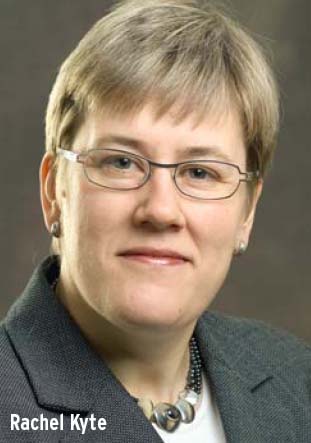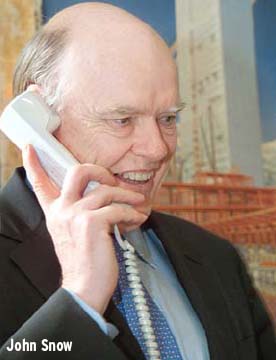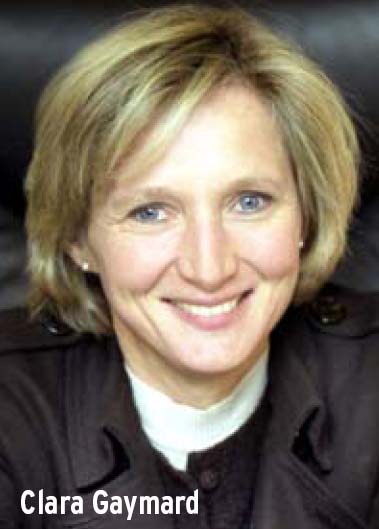UNITED KINGDOM

The IFC refutes claims that its review of environmental and social safeguard policies constitutes a watering down of current standards and that the consultation process is deeply flawed. In an effort to make its current safeguard policies, which form the basis of the Equator Principles (see article, page 17), clearer, concise and more comprehensive, the IFC proposes replacing them with a set of nine performance standards, which include a more comprehensive treatment of labor rights, community health and safety and biodiversity.
Following publication of the draft policy and performance standards in August, the IFC has given local stakeholders, Equator banks and nongovernment organizations (NGOs) until mid-December to comment on the new standards.
However, some NGOs claim that four months is insufficient for a worldwide debate, saying they have yet to see implementation guidelines, which are either unavailable or not translated into local languages.They [the IFC] are trying to rush this through, says Johan Frijns, coordinator of BankTrack, an international network of advocacy groups, some of which have boycotted regional consultation meetings. If they are serious about engaging affected communities, we need to translate documents into the local language, he adds. NGOs say the wording of the draft consultation suggests a shift from mandatory compliance to a discretionary approach. Safeguard policies are meant to safeguard those that are affected by IFC decisions, Frijns continues. Performance standards suggest discretionary measures, which is a different thing.
Equator bank ABN AMRO also expressed concern.We dont want a set of broadly defined performance standards where disputes can arise, says Richard Burrett, global head, sustainable development,ABN AMRO.
Rachel Kyte, director, environment and social development department, IFC, says no one had provided evidence of how the standards constituted a weakening of current policy.In many cases what people are saying is that by clarifying aspects, it gives the impression of being stricter, she says.As the IFC had already gathered volumes of information in terms of what worked and what didnt work with its current safeguard policies, Kyte says four months for consultation was sufficient.
Anita Hawser
|
|
 When is a dollar worth ninety cents? When Cuban President Fidel Castro says so. In a move to mop up dollars on the island, Havana ordered Cubans to exchange them during a three-week period or pay a hefty 10% surchargefor which Cubans are getting only ninety cents on the dollar after the November 14 deadline. To avoid the penalty, they had to quickly dump dollars in favor of convertible pesos, a dollar-pegged currency that is worthless abroad. While dollars had been exchanged on the open market at around 27 pesos (the regular non-convertible variety) for every greenback, convertible pesos are exchanged at one-to-one. After the fall of the Soviet Union, Castro virtually dollarized the socialist economy, with pesos used almost solely for purchases on monthly ration cards. But with the US tightening screws on the regime and finding new ways to block annual hard currency inflows of some $9 billion, Castro decided it was time to end his overdependence on the currency of his closest enemy. Tourists bringing euros, Canadian dollars, British pounds and Swiss francs are not charged the commission, in a move to keep planeloads of European and Canadian sun worshippers happy. Not so for Cuban exiles who send home an estimated $1 billion each year. Castro suggests they send euros instead but will not likely be displeased by the extra revenue the surcharge creates. While Cubans were once banned from holding dollars, government officials were surprised at the amount accumulated in recent years. Upon learning of the decree, many chose to open dollar bank accounts from which they could later withdraw in convertible pesos. Banks reported opening balances as high as $40,000 in a country where normal monthly wages rarely exceed $20 (no zeros missing!). Central bank president Francisco Soberon said, We didnt know how much people were saving under their mattresses. As someone who took power as the result of a guerrilla war, Castro is likely hoping thats all theyve been hiding under their beds. Santiago Fittipaldi |
UNITED STATES
TREASURY SECRETARYS STRONG-DOLLAR MANTRA STRIKES A DISCORDANT NOTE

Every time the dollar takes a particularly bad stumble on the foreign exchange markets, which has been quite frequent lately, treasury secretary John Snow reiterates the Bush administrations official policy mantra.We support a strong dollar.A strong dollar is in Americas interest, Snow says. And then the dollar declines some more. Under the Bush administration, the greenback has lost more than 20% of its value on a trade-weighted basis.
After the dollar hit another all-time low against the euro last month, Snow told reporters that cur rency values are best set in open and competitive markets. Efforts to impose non-market valuations on currencies are at best unrewarding and checkered, he said.
In other words, the US is not about to join the Europeans or anyone else in a joint intervention to manage the pace of the dollars decline, which hasnt been disorderlyat least not yet.
Only when the dollars decline leads to a major sell-off in the US treasury market or the stock market will the US respond with currency intervention, analysts say. Meanwhile, the weaker dollar is helping to boost US exports to record levels, which is keeping the trade deficit from widening even further.
Because the weaker dollar is the only way, short of pushing the economy into recession, for the US to alleviate its trade imbalance, market participants dont really believe Snow when he says the US wants a strong dollar.Asked after a speech in London last month why the US continues to support a strong-dollar policy in public, Snow replied, Because its our policy.
Currency market analysts at Brown Brothers Harriman in New York said in their note to clients that same day: We wonder what Treasury will say whenand ifit really would prefer a strong dollar.
Gordon Platt
|
|
 When one is considering what is quintessentially French, many things come to mind. One characteristic that is not among them is a dedicated work ethic. For The Invest in France Agency, whose role is to bring foreign investment into France, that is a problem. Instead of simply shrugging and saying, Cest la vie, however, the agency is splashing out $25 million on a campaign aimed at showing investors and businesses that France is a great place to get some work done. Clara Gaymard, the president of the Paris-based agency, is intent on dispelling the myths that surround the French economy and its business climate. The number-one myth is that there is no flexibility in the work environmentthat it is impossible to fire anyone, says Gaymard, who launched the agencys global marketing campaign at a luncheon at the French Consulate in New York City last month. In case anyone was still in doubt, she added: Its not true. Its a myth. The campaign also aims to lay to rest two other stereotypical images of French workers: that they are always on strike and are unproductive. In this case, the evidence stacks up in Frances favor: France loses fewer days to strikes than the United Kingdom or the US, and it has the second-highest hourly productivity rate in the world, ahead of the United States. As the economic development arm of the French government, The Invest In France Agency has helped lure $50 billion worth of foreign brick-and-mortar investment across French borders over the years, so why did it choose now for such a lavish campaign? The answer lies to the east: After the recent expansion of the European Union, the French government is eager to keep abreast of the fierce competition among nations for foreign investment. France is also keen to mend some broken fences with the US. In the past two years there have been some difficult moments, says Jean-David Levitte, the French ambassador to the United States, adding that his classification of recent US-French relations is a diplomatic understatement. There was 9/11, and the issue of Iraq was too prominent, and then there was the US election. The ambience was not good, he says. Whether a $25 million campaign can change all that remains to be seen. But, at the very least, the nation known for wine, cheese, haute couture and haute cuisine will also be known as an appealing place to do global business. Paula L. Green |



